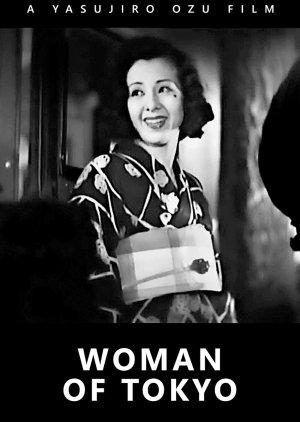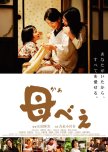
Această recenzie poate conține spoilere
All my effort is rewarded with a slap!
Director Ozu tread over common 1930's cinema ground in this film. Once again, a strong woman who sacrifices all for her family and the fear of unemployment loom during a time of economic crisis and cultural upheaval.Woman of Tokyo managed to pack a fair amount of tragedy into its scant 47 minutes length. Chikako worked an office job during the day and told her brother, Ryoichi, she helped with translations for a professor at night. She paid all of the bills and her brother's tuition as well as giving him spending money. Ryoichi's world turned upside down when he found out that his sister was actually working as a prostitute at night leading to tragic consequences. Chikako only desired for her brother to graduate so that he would have a stronger chance of landing a job, something he was unable to appreciate.
My reaction to this film might have been better if so many of these early films didn't focus on women becoming prostitutes to provide for their men, whether husbands, children or brothers and then bearing the brunt of abuse from those men and society. In a world where male unemployment was high and job opportunities were scarce for women, the women still did what was necessary to feed and shelter their families sometimes voluntarily, sometimes not. And in the case of Woman of Tokyo, like many other cinema sisters, put their brothers through school. This film would have fared better with me if Chikako had ever set her brother down and explained the facts of life to him and the reality of their situation. He lived a carefree life going to school, hanging out with his friends and with his girlfriend while his sister worked day and night to provide for him. His pocket money for entertainment came at the sacrifice of her body and shame. The police were also investigating her as a "dangerous person". To bear his reproach and scorn and society's as well seemed absurd. Women's pride always seemed to take a backseat to providing for their fragile men. I know it was a different day and time, different culture and a time of transition but this film hit my feminist's rant button as I watched it.
As always, Ozu put together an aesthetically pleasing film. A teapot as it boiled and steamed and then calmed followed much of the mood of the film. The version I watched had no sound. Tanaka Kinuyo, as the girlfriend who spills the gossip and Egawa Ureo as the thoughtless brother have shown up in other Ozu films and always do a good job even in this film where they are given little time to develop their characters. Okada Yoshiko's performance varied as she played the sweet dutiful sister sending her brother off to school in the morning and warmly welcoming a customer in the evening. I wish Ozu would have let us see into her feelings and motivations more instead of leaving her largely silent and stalwart.
If you are a fan of Ozu's films or silent films, Woman of Tokyo is worth seeing, even if it feels the theme may be redundant to some of his and other directors' works from this time.
8/6/22
Considerați utilă această recenzie?


































